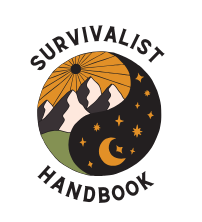Are you ready to take a journey back in time and embrace the ancient skills of our Stone Age ancestors? In today’s modern world, it’s easy to forget the fundamental survival techniques that have been honed over thousands of years. That’s why my blog, “The Survivalist Handbook,” is here to guide you through the wilderness and equip you with the knowledge and techniques necessary to thrive in any environment. From making fire using primitive methods to hunting and gathering food, these age-old skills will transform your outdoor experiences, whether you’re an avid adventurer or simply looking to enhance your preparedness. Get ready to step into the shoes of our ancestors and master the wilds like never before!
Introduction
Whether you’re an avid adventurer or simply curious about preparedness, wilderness survival skills are essential for anyone who ventures into the great outdoors. From building a fire to finding food and water, these skills can be the difference between a challenging experience and a life-threatening situation. In this article, we will explore the importance of wilderness survival skills and how stone age skills continue to be relevant in modern times. So, get ready to embrace the wisdom of our ancestors and master the art of primitive survival.
Fire Making
One of the most crucial skills in wilderness survival is the ability to create fire using primitive methods. Fire not only provides warmth and comfort but is also essential for cooking food, purifying water, and signaling for help in a survival situation. By mastering techniques such as friction fire starting, using a bow drill or hand drill, you can harness the power of fire even without modern tools. Understanding the various types of tinder, such as dry grass or tree bark, and learning how to build and maintain a fire are vital skills that can save your life in the wild.

Shelter Building
Knowing how to construct a shelter using natural materials is another essential skill for wilderness survival. While the type of shelter you build will depend on the environment and available resources, learning different techniques will ensure your safety and comfort. By utilizing materials such as branches, leaves, and rocks, you can create structures that provide protection from the elements and potential threats. Whether it’s a lean-to, debris hut, or a natural cave, having the knowledge to build a shelter can make all the difference in your survival journey.
Finding Food
In a survival situation, finding food becomes a top priority. Understanding how to identify edible plants and insects is crucial for sustaining yourself in the wild. By studying the different plant species, learning how to properly forage, and avoiding poisonous plants, you can supplement your diet with nature’s abundance. Additionally, primitive hunting and trapping techniques can help you capture wild game for sustenance. By honing your skills in methods such as spearfishing, snaring, or using primitive weapons like the atlatl or bola, you can increase your chances of finding a meal in the wilderness.

Water Sourcing
Water is one of the most vital elements for survival, and knowing how to locate and purify water sources is essential. By understanding the signs of potential water sources, such as tracking animal movements or looking for vegetation that indicates water nearby, you can increase your chances of finding a reliable supply. However, water in the wild is not always safe to drink, and that’s where traditional methods of water filtration come in. Techniques such as boiling, using natural filters like sand or charcoal, or building a solar still can help remove impurities and make water safe for consumption.
Tool Making
Crafting primitive tools from stone and bone is a skill that has been honed by our ancestors for thousands of years. By learning the art of flint knapping, you can create razor-sharp edges on rocks and fashion them into knives, arrowheads, or scrapers. These tools can be used for various survival tasks such as hunting, skinning, or preparing food. Understanding the different types of stones and how to shape them is crucial for creating effective and durable tools in the wild. By utilizing stone tools, you can increase your chances of survival and thrive in the most challenging environments.
Navigation
Primitive navigation techniques come into play when modern technology fails or is unavailable. By honing your skills in using natural landmarks, celestial bodies, and even the weather, you can find your way in the wild without relying on GPS or compasses. Techniques such as using the position of the sun or stars to determine directions, observing patterns in the environment, or using a simple shadow stick can help you navigate the wilderness with confidence. By understanding these ancient methods, you can unlock the secrets of the land and become a master of navigation in any situation.
Medical Skills
In the wild, injuries and illnesses can occur, and having knowledge of traditional herbal remedies and primitive first aid techniques can be lifesaving. By studying and familiarizing yourself with medicinal plants and their uses, you can treat common ailments such as cuts, burns, or infections. Understanding the properties and preparation methods of these herbs can make a significant difference in your ability to care for yourself or others in a survival scenario. Additionally, learning primitive first aid techniques like splinting, bandaging, or improvising materials can help stabilize injuries and provide temporary relief until professional help is available.
Awareness and Adaptability
Developing keen senses and instincts is crucial for wilderness survival. By honing your awareness of your surroundings, you can identify potential threats or opportunities for survival. Learning how to read animal tracks, listen to the sounds of the forest, and observe changes in weather patterns can provide valuable information for decision-making. Additionally, being adaptable to changing wilderness conditions is essential. The ability to quickly assess and adjust your plans, utilize available resources efficiently, and remain calm under pressure can greatly increase your chances of survival in unpredictable environments.
Cultural Significance
Understanding the history and traditions of primitive survival not only provides a deeper connection to our ancestors but also helps preserve ancient knowledge in a modern world. By learning about the cultural significance of stone age skills, we gain a greater appreciation for the wisdom and ingenuity of those who came before us. Embracing these skills allows us to carry forward their legacy and ensure that valuable survival techniques are not lost to time. By engaging with these traditions, we can connect with our roots and develop a profound respect for the natural world.
Conclusion
In conclusion, wilderness survival skills are not only crucial for venturing into the great outdoors but also relevant in our modern world. By embracing stone age skills, we can tap into the wisdom of our ancestors and develop the abilities to thrive in any wilderness environment. From fire making and shelter building to finding food and purifying water, each skill plays a vital role in ensuring our survival. Through learning and practicing primitive survival techniques, we not only gain practical knowledge but also deepen our connection to nature and preserve ancient traditions. So, strap on your figurative loincloth and embark on a journey to master the wilds!

